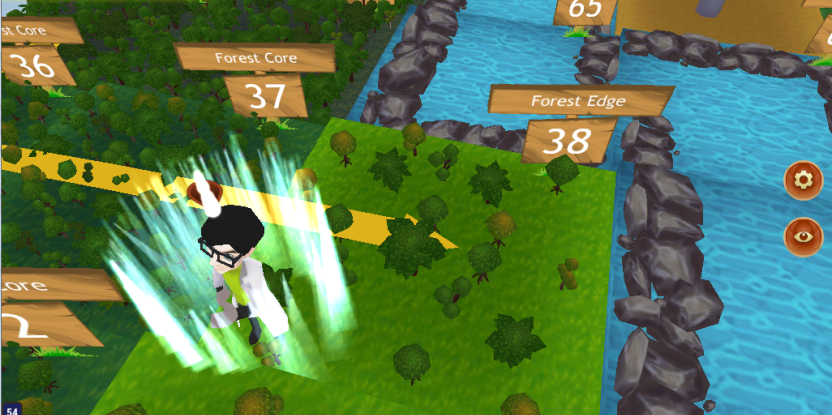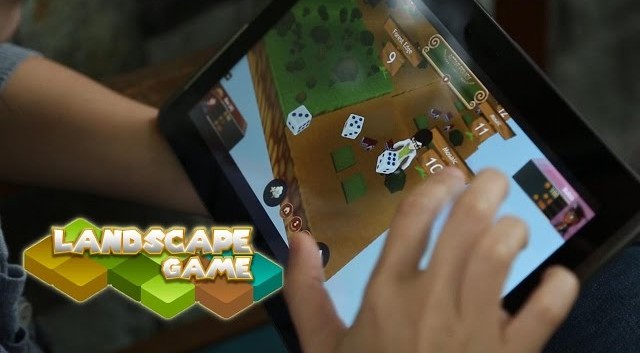
BOGOR, Indonesia—How would you invest in a forested landscape? Would you cut it down for timber, or preserve it for carbon credits? Would you clear it for oil palm, or build an eco-lodge for tourists? Can you get rich—and be eco-friendly at the same time?
These decisions are yours to make in “Landscape Game,” now available from the Center for International Forestry Research (CIFOR) as an online game and a downloadable app at cifor.org/LandscapeGame.
In 2007, Herry Purnomo, a scientist with the Center for International Forestry Research (CIFOR) and professor at Bogor Agriculture University in Indonesia, invented “Landscape Game,” a board game designed for players to maximize revenue while balancing the economic and ecological trade-offs of the “landscape approach” to sustainable development.
“The purpose of the game is a learning tool, to understand that in the landscape, there are many actors with legitimate interests,” Purnomo said. “It’s for academia, community members, policy makers—anyone who is interested in balancing conservation and development, including climate change.”
More than a billion people around the world have played Monopoly and SimCity, two popular games that let you invest in property and create your own world—but neither of those games considers what happens to the land, the climate, or wildlife.
“Landscape Game” does. Play as an investor and reap returns from plantations, ecotourism or mining. Or, play as a policymaker and balance conservation and development in your landscape through enticing subsidies—or punishing taxes. Race your opponents to build your wealth, but don’t ignore the impacts of your actions: To win this game, greed is good—but “green” is better.
We want you to share Forests News content, which is licensed under Creative Commons Attribution-NonCommercial-ShareAlike 4.0 International (CC BY-NC-SA 4.0). This means you are free to redistribute our material for non-commercial purposes. All we ask is that you give Forests News appropriate credit and link to the original Forests News content, indicate if changes were made, and distribute your contributions under the same Creative Commons license. You must notify Forests News if you repost, reprint or reuse our materials by contacting forestsnews@cifor-icraf.org.
